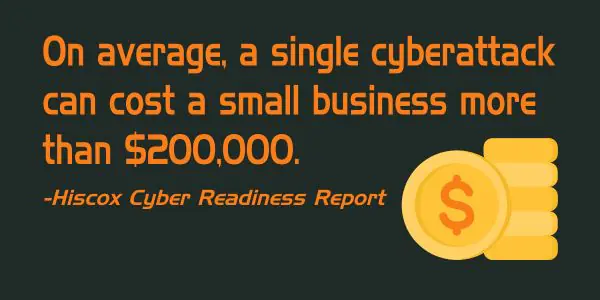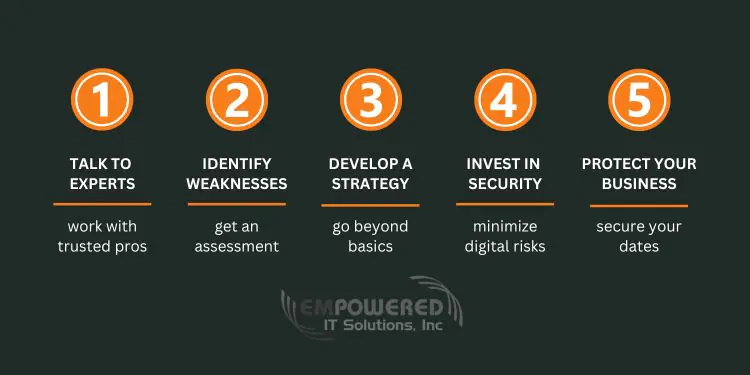In today’s digital age, businesses of all sizes face a growing and evolving threat landscape in the form of cybersecurity challenges. Among those most affected are small and medium-sized businesses (SMBs), which often lack the extensive resources and expertise of larger enterprises. As technology continues to advance, so do the methods and sophistication of cyber threats, making it imperative for SMBs to address these challenges head-on to protect their valuable assets, data, and reputation.
The Alarming Reality for Small and Medium-Sized Businesses
Recent studies indicate that a staggering 69% of SMBs have not properly identified their cybersecurity threats, leaving them vulnerable to potential attacks. Moreover, it has been observed that 65% of the victims of cyberattacks are SMBs, emphasizing the severity of the problem they face. One particular report, revealed that on average, a single cyberattack can cost a small business more than $200,000. Such financial ramifications can prove to be devastating for SMBs, often leading to irreparable damage or even closure of the business.

Cybersecurity Challenges for Small and Medium-Sized Businesses
SMBs face a unique set of cybersecurity challenges that can have significant consequences if not adequately addressed. As your business continues to grow and digitize its operations, it becomes an attractive target for cybercriminals seeking to exploit its vulnerabilities. Here are some of the most pressing cybersecurity challenges that your business may encounter:
1- Limited Resources and Budget
SMBs often have restricted resources and budgets compared to larger enterprises. This limitation makes it challenging to invest in robust cybersecurity solutions and hire dedicated IT security professionals.
2- Lack of Awareness and Expertise
Many SMB owners and employees might not be fully aware of the latest cyber threats or best practices for cybersecurity. Additionally, they might lack the expertise to implement and maintain effective security measures.
3- Increasing Cyber Threat Landscape
Cyber threats continue to evolve, becoming more sophisticated and difficult to detect. SMBs must keep pace with these ever-changing threats to safeguard their systems and data effectively.
4- Employee Training and Awareness
Employees can inadvertently become the weakest link in an organization’s cybersecurity defenses. Insufficient cybersecurity training and awareness among staff can lead to unintentional data breaches and phishing attacks.
5- Bring Your Own Device (BYOD) Policies
SMBs often embrace BYOD policies to promote flexibility and productivity. However, this can increase the risk of data breaches and unauthorized access if proper security measures are not in place.
6- Ransomware and Data Breaches
Ransomware attacks can be particularly devastating for SMBs, leading to data loss, business disruption, and potential financial ruin. Data breaches, whether caused by external threats or internal negligence, can also harm a company’s reputation and customer trust.
7- Insufficient Incident Response Plans
Many SMBs lack formal incident response plans to handle cyber incidents effectively. A delayed or inadequate response can exacerbate the impact of a cyberattack.
8- Compliance Challenges
SMBs often struggle to comply with industry-specific regulations and data protection laws, leaving them vulnerable to fines and legal consequences.
9- Phishing Attacks
Phishing emails and social engineering tactics remain prevalent, targeting employees to gain unauthorized access or compromise sensitive information.
10- Patch Management
SMBs may struggle to keep their software and systems up-to-date with the latest security patches, leaving them susceptible to known vulnerabilities.
Bridging the Gap: From Challenges to Solutions
As we’ve seen, the world of cybersecurity poses a myriad of challenges for small and medium-sized businesses (SMBs). From limited resources and budget constraints to the increasing sophistication of cyber threats, the landscape can seem daunting. However, acknowledging these challenges is the first step towards building a robust defense strategy. Platforms like Nordlabs, where developers and engineers can tackle security and privacy questions in tech, are imperative. Now, let’s delve into actionable solutions that empower SMBs to confront these challenges head-on and fortify their cybersecurity defenses. By embracing these solutions, businesses can effectively mitigate risks and pave the way for a more secure digital future.
Invest in Managed Security Services
SMBs can overcome resource limitations by partnering with managed security service providers (MSSPs). MSSPs like Empowered IT Solutions offer cost-effective solutions, providing access to a team of cybersecurity experts who can manage security infrastructure round-the-clock. With proactive monitoring and advanced threat detection tools to identify and respond to cyber threats in real-time, our team of experts can quickly detect and contain security breaches.
Implementing regular cybersecurity training programs for employees is crucial. Educate them about phishing scams, social engineering tactics, and best practices for data protection to reduce the risk of human error in cybersecurity incidents.
Comprehensive Policies and Procedures
By implementing comprehensive policies and procedures, SMBs can create a proactive framework that empowers employees and enhances cybersecurity readiness. With a well-defined incident response policy, businesses can minimize the impact of cyber threats by outlining roles, responsibilities, and communication protocols. Simultaneously, a secure BYOD policy can guide the safe use of personal devices for work purposes, incorporating measures like mobile device management (MDM) solutions to enforce security controls.
By implementing comprehensive policies and procedures, SMBs can create a proactive framework that empowers employees and enhances cybersecurity readiness. With a well-defined incident response policy, businesses can minimize the impact of cyber threats by outlining roles, responsibilities, and communication protocols. Simultaneously, a secure BYOD policy can guide the safe use of personal devices for work purposes, incorporating measures like mobile device management (MDM) solutions to enforce security controls.
Regular Security Audits and Assessments
Conducting periodic security audits and vulnerability assessments helps identify weaknesses and ensures that security measures are up to date and effective.
Key Steps for Businesses to Prepare and Strengthen Cybersecurity
To effectively confront cybersecurity challenges, SMBs must proactively implement comprehensive strategies to protect their sensitive data and infrastructure. Here are five key steps for businesses to prepare and strengthen their cybersecurity posture:

Empowered IT Solutions: Your Partner in Cybersecurity
Addressing cybersecurity challenges can be overwhelming for SMBs, especially considering the complexity and ever-changing nature of cyber threats. This is where Empowered IT Solutions can step in as a reliable partner to help businesses overcome these obstacles and gain peace of mind.
With years of experience in providing top-tier cybersecurity solutions, Empowered IT Solutions has a proven track record of assisting SMBs in protecting their data and infrastructure from potential cyber threats. Our team of experts conducts thorough risk assessments, identifies vulnerabilities, and implements tailor-made cybersecurity strategies that align with each business’s unique requirements and budget.
By partnering with Empowered IT Solutions, businesses can stay one step ahead of cybercriminals and ensure the highest level of protection for their critical assets. With our proactive approach, we help businesses stay resilient against the ever-evolving threat landscape.
In our commitment to supporting SMBs in their cybersecurity journey, we are pleased to offer a complimentary security assessment. This comprehensive evaluation will provide valuable insights into a business’s current cybersecurity posture and highlight potential areas for improvement.
